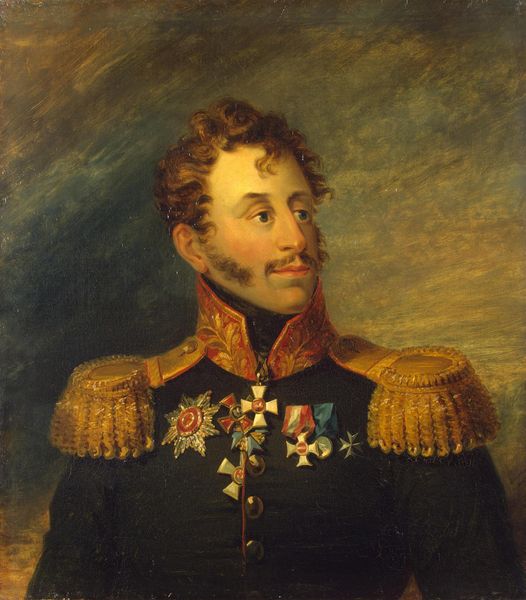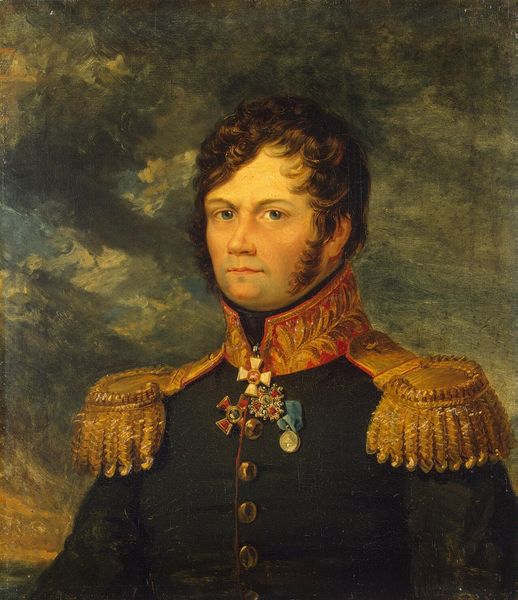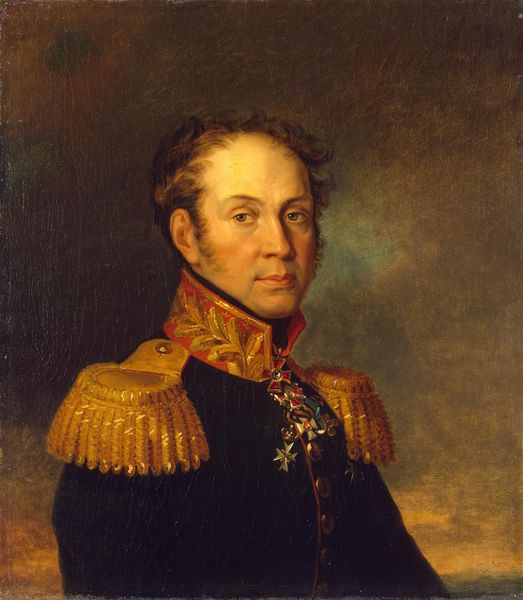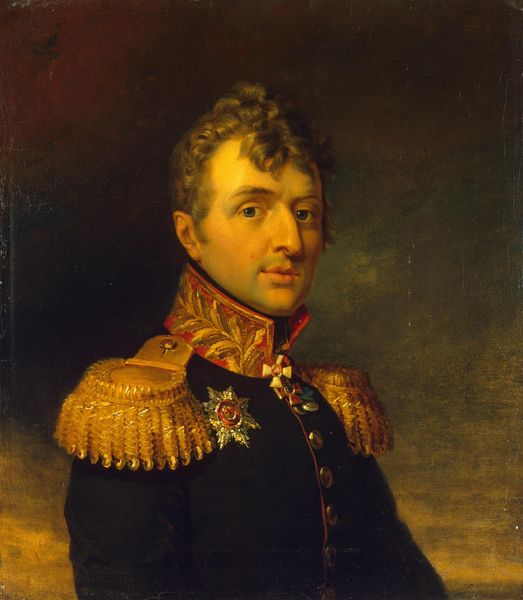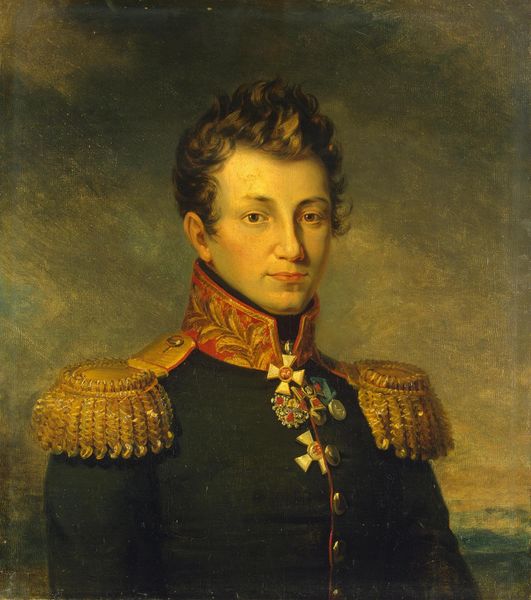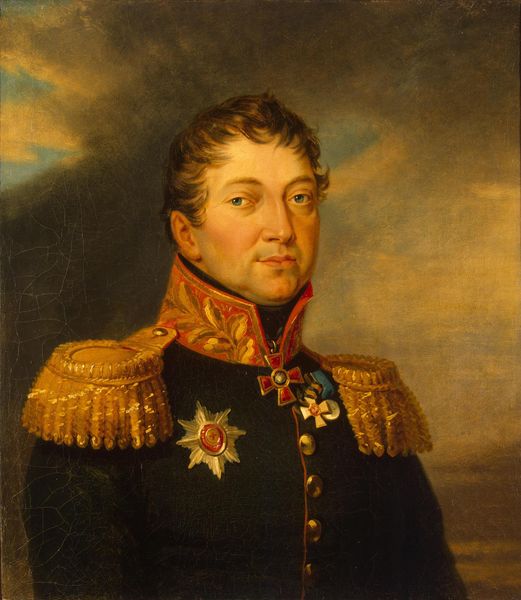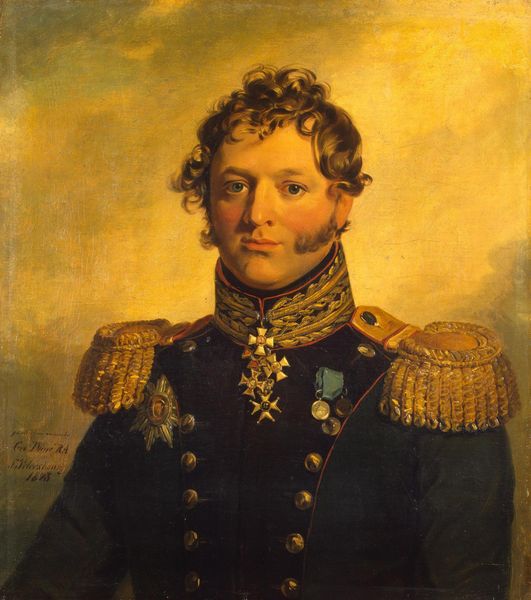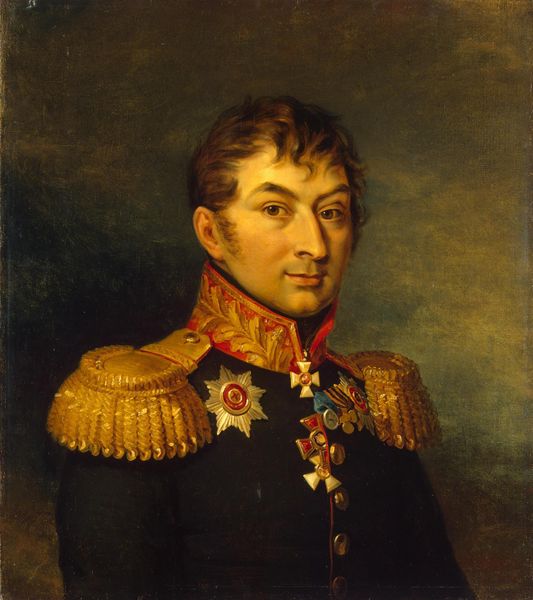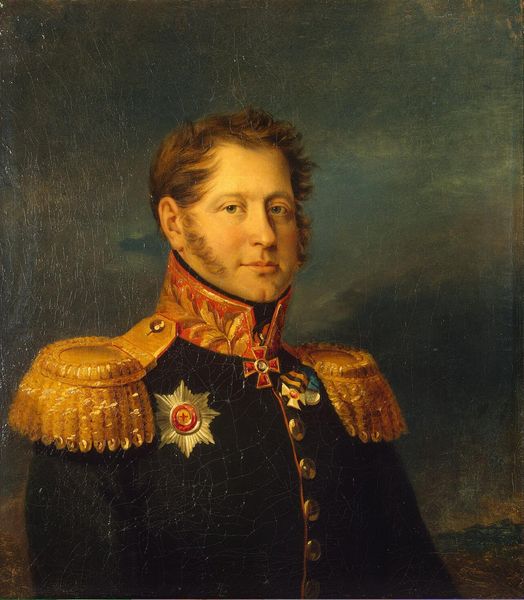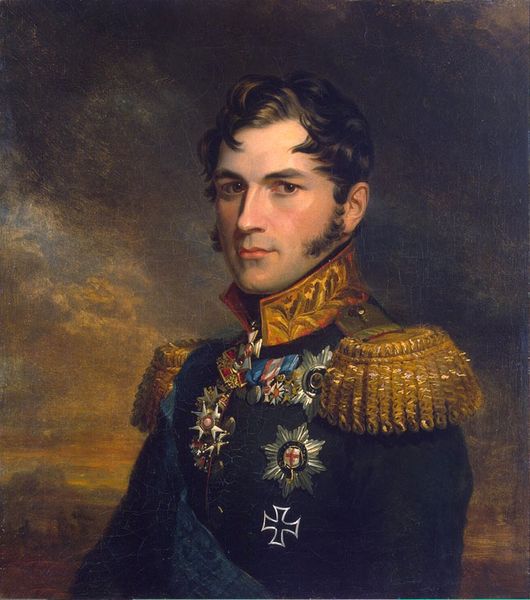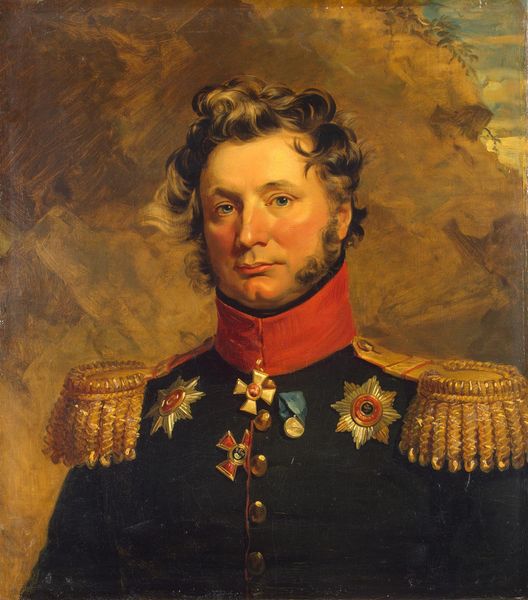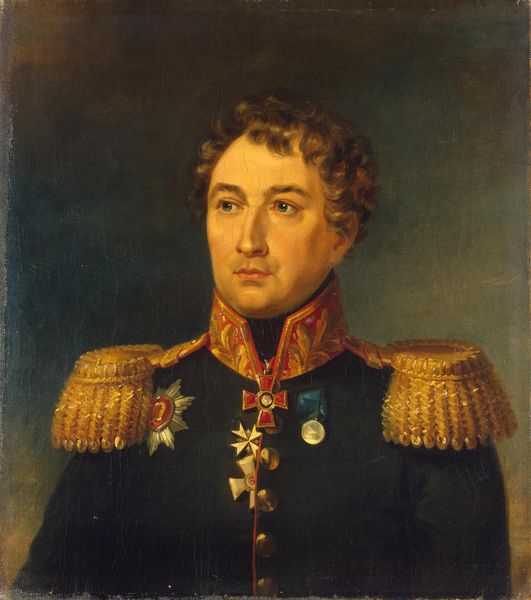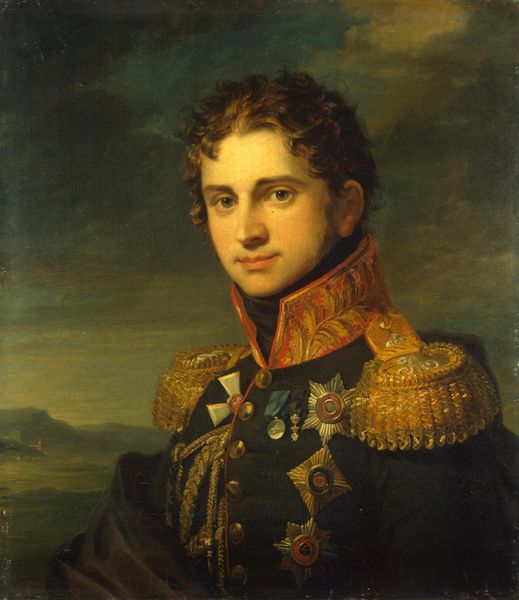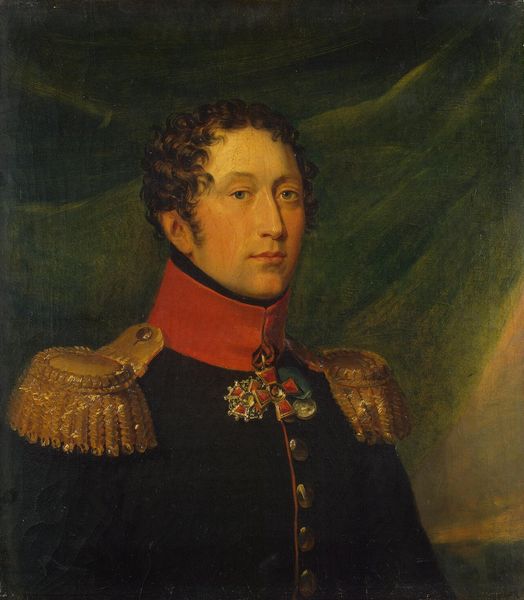
painting, oil-paint
#
portrait
#
painting
#
oil-paint
#
romanticism
#
history-painting
#
academic-art
Copyright: Public domain
Editor: We're looking at "Portrait of Alexander P. Kutuzov" by George Dawe, created around 1825. It's an oil painting currently housed in the Hermitage. What strikes me most is the contrast between the somewhat softened, romantic portrayal of the face and the sharp, almost metallic detailing of his uniform. What aspects stand out to you? Curator: The visual tension achieved through contrasting textures is indeed compelling. Notice how Dawe utilizes chiaroscuro—the strategic arrangement of light and shadow—to sculpt Kutuzov's face, drawing the eye towards his gaze. Now, consider the formal structure of the painting; can you observe any distinct geometric relationships? Editor: I see the sharp lines of his collar and coat, which form a strong triangle shape, almost bisecting the canvas. This shape is echoed, albeit softly, by his face shape. Curator: Precisely. These structured lines juxtapose with the softer execution of the facial features and the swirling background. Note how the color palette contributes; the dark, solid uniform anchoring the brighter skin tones. How does the treatment of light further influence your reading? Editor: Well, the light seems to come from above, highlighting the face but leaving much of the uniform in shadow, adding to the depth. The sharp detail on the gold epaulettes pulls my eyes as well. I think the darkness contrasts his features. Curator: It does direct our gaze. Also, note the way in which Dawe handled the materiality of oil paints themselves. Thick impasto highlights the ornamentation and thins into translucent washes across his face and in the background. Considering Dawe's treatment of form, colour and material, would you characterize the artwork's aesthetic as balanced or intentionally discordant? Editor: That’s interesting, I think Dawe wanted balance between detail and feeling. Thank you! Curator: Indeed, considering formal relationships enhances the visual complexity, doesn't it?
Comments
No comments
Be the first to comment and join the conversation on the ultimate creative platform.
